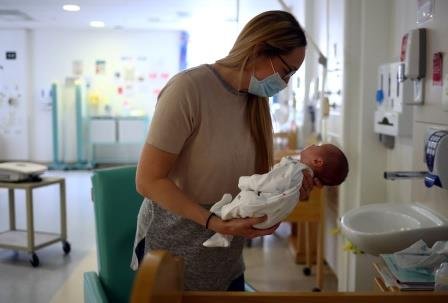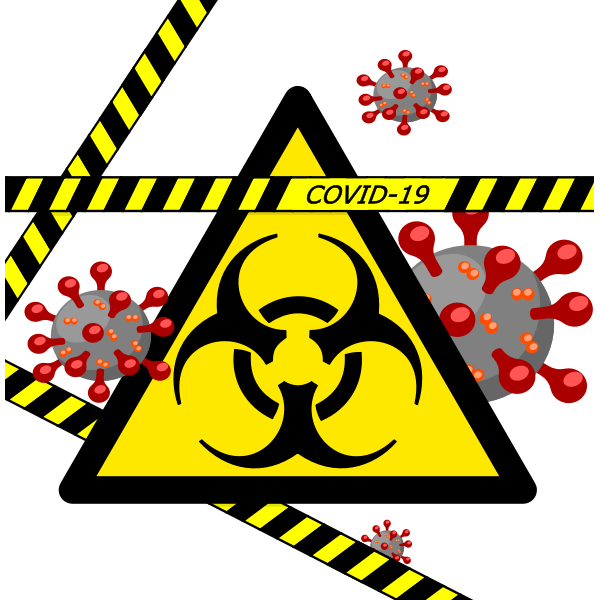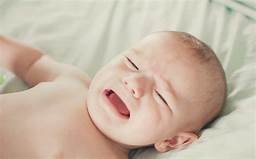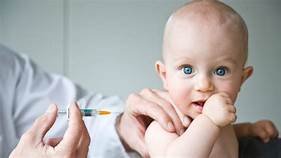Shidan TosifHonorary Clinical Associate Professor, The University of Melbourne and Sarah McNabHonorary Fellow of Pediatrics, Director of General Medicine, Murdoch Children's Research Institute

Parents are understandably concerned about the consequences of their child obtaining COVID-19. Due to their underdeveloped immune systems, babies may be vulnerable, and they are also ineligible for most treatments and vaccinations offered to older children and adults.
The good news is that most babies only have minor illnesses. If your baby tests positive, here's what to expect.
There are several precautions you can take if you test positive and have a newborn or infant at home. Handwashing before providing care and wearing a mask when breastfeeding or in close contact are two examples. COVID-19, according to current evidence, cannot be transmitted through breastfeeding. Breastfeeding (if you're already doing it) is still very essential, and there's no reason to separate mother and baby.
Vaccination may also limit transmission from older siblings and other close contacts. Caregivers who are vaccinated will have a lower risk of severe disease, reducing the dangers for mother and infant.
How to do a COVID Test on a Baby?

Putting your infant to the test is akin to putting yourself to the test. Babies can typically be tested with PCR testing in the same areas that adults are, or they can be tested using a rapid antigen test (RAT).
If you're going to use a RAT, be sure it's for the right age group, because not all RATs are suitable for minors. If it's suitable, it'll be mentioned so on the package. Otherwise, consult your pharmacist to determine which test is appropriate for your child. Be sure to go through all the usage instructions for the test carefully, as it won’t be the same for all the tests.
Children of all ages have been less likely than adults to get severe illnesses during the pandemic. Omicron appears to have a reduced risk of severe disease than preceding variants, despite the fact that transmission of the later variant has been higher.
Click here for a beginner's guide with all the advice and guidance to give your baby the best start in life!: https://bit.ly/3MSpqM6
What is the severity of COVID in infants?

COVID-19 affected newborns, based on our clinical experience and international studies, have typically experienced minor illnesses. It is quite uncommon to require hospitalization or intensive care. If a baby is premature or has another major illness or condition, they are at a higher risk. COVID-19, like other respiratory viruses like influenza and RSV, causes extremely few deaths in infants, according to studies.
A variety of immunological changes in newborns have been postulated as explanations for why babies tend to have milder diseases. While there is no vaccination for infants, antibodies can be passed down from mothers who were vaccinated while pregnant to their newborns, providing protection.
What can be the symptoms?

When a baby has COVID-19, they may experience a variety of symptoms that are similar to those seen with other respiratory viruses. Up to 25% of newborns may show no signs or symptoms.
Fever, nasal congestion, feeding difficulties, and cough are more common symptoms. Breathing difficulties, lethargy, and persistent fever may be signs of severe disease. If your infant has a fever or is experiencing discomfort, you can give them paracetamol or ibuprofen, and nasal saline drops that can help with congestion. If you're thinking about giving medications to a baby under the age of three months, talk to your doctor first.
Click here for a beginner's guide with all the advice and guidance to give your baby the best start in life!: https://bit.ly/3MSpqM6
When to consult a doctor?

If your baby has any of the following, consult your doctor: Difficulty in breathing, persistent NSE 0.94% fever, difficulties in intaking food affecting hydration or causing lesser than 50% of a normal number of nappies. It's important to keep in mind that any fever in a newborn under the age of three months requires medical attention, regardless of whether the baby has COVID or not.
Anything else?

It's also crucial to guard babies against other common viruses that might harm newborns, such as influenza. The influenza vaccine is available to children over the age of six months.
Click here for a beginner's guide with all the advice and guidance to give your baby the best start in life!: https://bit.ly/3MSpqM6
You've got a free upvote from witness fuli.
Peace & Love!
Downvoting a post can decrease pending rewards and make it less visible. Common reasons:
Submit